- Home
- Nick Hornby
Stuff I've Been Reading
Stuff I've Been Reading Read online
Nick Hornby
STUFF I’VE BEEN READING
Contents
INTRODUCTION
AUGUST 2006
The challenges of reading during a World Cup month; knowing too much about the author whose work you’re reading; the intricacies and danger of self-deprecation
SEPTEMBER 2006
How ants find their way home; the global prominence of the World Cup and the accompanying American apathy
OCTOBER 2006
Talking seriously about bad books; hostile takeover by cockroaches; melting permafrost; post-9/11 paranoia
APRIL 2007
Thomas Hardy’s pallbearers; literature’s obstruction by sex; quality over quantity; anthropomorphization; Robert Altman’s casting choices
MAY 2007
Musical preferences of iPods; recommendations from Stephen Frears; fat wives of tobacconists; Orwell on Dickens
JUNE/JULY 2007
Novelist as omniscient narrator; what powers the great machines of the world; good wine and Sartre; American vernacular in the mouth of an Englishman
AUGUST 2007
The Stasi v. the Band; Tony Blair as a less servile Jeeves; novels that have you scurrying to the computer to look at prostitutes on the Internet
SEPTEMBER 2007
Preparing for the apocalypse; the third-greatest children’s book of the last seventy years; blank-verse werewolf novels
OCTOBER 2007
Coming across a chocolate fountain in the middle of the desert; John Waters-style camp; books for adults that aren’t boring
NOVEMBER/DECEMBER 2007
The reading month as a cake; fat readers; unreadable Marxist pamphlets; all that Old-Left aggression; The Most Inhospitable Country on Earth Cup
JANUARY 2008
Joel Osteen’s perfect teeth; feckless American men; Tom Perrotta as Nick Hornby; reading out of fear of ignorance
FEBRUARY 2008
An amazing feat of recollection; the Weather Underground; lordship over knighthood; more Dylan
MARCH/APRIL 2008
Why parents rarely go to the movies; sepia book jackets; Margaret Thatcher’s repulsive jingoism; Heath Ledger and Charlotte Gainsbourg making love
MAY 2008
Thinking about not reading; a genome as long as the Danube; crossing the Atlantic on a raft v. staying at home to watch TV
SEPTEMBER 2008
The film version of Doctor Dolittle; books about film; the love child of Garrison Keillor and Shirley Jones; you, dear reader
MAY 2010
The return of the boomerang child; a venting of spleen; reviews by sailors from the Chatham dockyards; Mass Observation; attempted titillation
JUNE 2010
Tales from an Oscar nominee; a quantitative analysis of Jennifer Aniston’s career as a subject of mental occupation; the Toddlers’ Truce
JULY/AUGUST 2010
The psychological preoccupations of Americans; the Lost Booker Prize; mentions of Marshall McLuhan; devouring the oeuvre of Muriel Spark
SEPTEMBER 2010
Accolades for the Scientist of the Month; devastating effects of the World Cup; unsatisfactory e-reading experiences; the inevitable failure of impeccable taste
OCTOBER 2010
Dirty bits and dated couplings; sometimes-crazed introspection; Negative Twenty Questions; fortuitous typos; a singular and inimitable consciousness
NOVEMBER/DECEMBER 2010
The surprising discovery that some old shit isn’t so bad; how to make yogurt; a handy guide to Hellenic philosophy; humanistic long-form poetry
JANUARY 2011
The confessions of a literary fattist; mixed feelings about Dickens’s output; inaccurate descriptions of Donovan; an elevated study of self-consciousness
FEBRUARY 2011
A contender for Goal of the Month; crushing on Elizabeth Bishop; spectacularly crashing and burning; the constructs of taste
MARCH/APRIL 2011
Typical activities of Believer readers; unpromising subjects; cells that grow like kudzu; fiction written by arty, ignorant, unemployed losers
MAY 2011
A sub-Updikean marriage; familiarity with the deranged and fanatical; teenage athletes as the embodiment of a community’s aspirations
JUNE 2011
The observation of obscure American figures; poor decisions made by missionaries; properly funny bedtime reading; a cat-gotten tongue
JULY/AUGUST 2011
Reading life as memento mori; unlikely celebrity pairings; apocalyptic humour; the darkness of North Korea; controversial views on Tom Sawyer
SEPTEMBER 2011
Overstating the salvific effects of Great Literature; the introduction of a slogan; an advert for Body Shop Vanilla Shower Gel; the straight-edge scene
OCTOBER 2011
A righteous fury; the over-full cast of history; the sacrifices asked of a columnist; violent death; joys offered by the Waboba ball
NOVEMBER/DECEMBER 2011
Violent interest in the arts; everybody’s favourite literary biographer; the unwanted and feckless sons of Charles Dickens; a shadow side
Follow Penguin
STUFF I’VE BEEN READING
Nick Hornby is the author of six internationally bestselling novels (High Fidelity, About a Boy, How to be Good, A Long Way Down, Slam and Juliet, Naked) and four works of acclaimed non-fiction: Fever Pitch, 31 Songs, The Complete Polysyllabic Spree (the companion to this volume) and Pray (Penguin Special ebook). He lives in Highbury, north London.
By the same author
Fiction
High Fidelity
About a Boy
How to be Good
A Long Way Down
Otherwise Pandemonium (Penguin Pocket short stories)
Slam
Juliet, Naked
Non-fiction
Fever Pitch
31 Songs
The Complete Polysyllabic Spree
Pray (Penguin Special ebook)
Screenplays
Fever Pitch
An Education
To Nick Coleman
Introduction
Talking to a friend recently about the records that meant the most to me in the first twenty-one years of my life, I was struck by how many of them still mean something to me now. Born To Run and Darkness On The Edge Of Town; Blood On The Tracks; the first Television album; Al Green’s I’m Still In Love With You; Patti Smith’s Horses; My Aim Is True and This Year’s Model; Can’t Buy A Thrill and Countdown To Ecstasy; and dozens more … I can still listen to these without feeling as though I’m trying to pull back something that is best left where it is, or was. They’re great albums. I don’t believe that rock ’n’ roll is dead, or dying, and nor am I particularly nostalgic. People are still making great albums – or great bits of albums, anyway. The mid-1970s were an astonishingly fertile period in music, however, and a lot of the records made at that time mean something to people who weren’t even born when they were first released.
It doesn’t work like that with books, for all sorts of reasons. Those in their late teens and early twenties about to embark upon a lifetime of serious reading very rarely read new books, for a start. Hardbacks are expensive, and we don’t know what’s out – only the incurably and pitiably bookish twenty-year-olds spend their weekends reading the review pages of newspapers. If we have the right friends, then they are constantly thrusting paperbacks at us and telling us to read them – now, this minute! – and these books may have been published five, ten, or even fifty years ago. And when we are young, brand-new books are useless to us as cultural capital. I could find plenty of friends who wanted to talk about the first Ramones album the week it was released in 1976, but if I had rushed out and bou
ght John Updike’s Marry Me, published in the same year, I’d have struggled to find a peer to impress. I don’t think I had any friends who had read the Rabbit books, let alone anything from Updike’s later oeuvre. And, most important of all, early adulthood is a time for catching up: I was at university reading English, so there was all that, but I also discovered Raymond Chandler, Kurt Vonnegut, Tom Wolfe, Hunter S. Thompson, Donald Barthelme, John Fowles and Joseph Heller.
Every so often I pick up a book that I know meant a great deal to me in those early adult years, and I’m frequently surprised by its failure to connect with my older self. Dickens, you’ll be relieved to hear, still holds up pretty well. But some of the other novels that I can remember sitting up half the night to finish now seem clunky, or pretentious, or simply dull. (I had much greater tolerance for the slow and earnest back then; I would never have dared think any of these things about a published book.) I finished everything, sometimes quickly and sometimes with agonizing reluctance, and pretended to admire the things that everyone else seems to have admired. If I had been told, by a friend or a teacher or a critic or a blurb, that something was good, then I tried hard to like it. If I didn’t, then I couldn’t help but feel it was my fault, never the fault of the author.
I don’t read like that now. I give books up, I argue with them, quite often I know better (or know myself better) than to pick certain books up in the first place. And, of course, my tastes have changed. If I had read Marry Me in 1976, I’d probably have found what it had to say about marriage and adult life thrilling beyond all measure, news from a land that I was travelling towards and didn’t know much about. Reading it in 2011, in my early fifties, it seemed all wrong to me – dated, fearful of women, a little silly in places. Could it be that, despite literature’s obsession with durability and permanence, and pop’s supposed ephemerality, 1970s music is lasting better than 1970s fiction? The music has an unfair advantage: it is simple and direct, understood immediately and in its entirety, and made mostly by young people who were quite often uninterested in making sophisticated observations about the world and our place in it. Literature has to at least affect an understanding of adult life; it might be a long time before you find out that the author you loved most when you were twenty-one actually didn’t know very much about anything.
So it feels as though the books I’ve read or reread and loved over the last ten years – the ten years in which I’ve been writing these columns for the Believer – are the books that I can stand by. Five of those years are contained in this book, and in that time I’ve read and written about: Muriel Spark’s A Far Cry from Kensington; Penelope Mortimer’s The Pumpkin Eater; David Almond’s Skellig; Ali Smith’s The Accidental; Charles Portis’s Norwood; Colm Tóibín’s Brooklyn; Patti Smith’s Just Kids; David Kynaston’s Austerity Britain; Carl Wilson’s Let’s Talk About Love; Mark Harris’s Pictures at a Revolution; Sarah Bakewell’s How to Live; James Shapiro’s 1599; Claire Tomalin’s biographies of Dickens and Hardy. Reading that list back to myself now, it feels as though I’m counting off some of my favourite books, not from the last half-decade, but from my entire life as a reader. My eighteen-year-old self might not have understood why I read so much non-fiction; my thirty-year-old self would have been baffled by Penelope Mortimer’s understated sardonic despair, and Carl Wilson’s relativist defence of Céline Dion. But that’s precisely the point: I am now the person who needs and enjoys those qualities and ideas, and this list feels like a fuller, or at least more up-to-the-minute, reflection of self than anything I could previously have managed. These loved books are me now, and previous loved books were me then, and I retain only a passing interest in the latter person.
‘Why do you read such random books?’ a friend asked recently.
I don’t know whether he is able to plot his own reading on a straight line, or whether he’s found his genre and his fields of interest and he sticks to them, but either way, I’m happy with my randomness, mostly because it never feels random to me.
Reading is a long conversation with several different people, all of them living in your head, all of them demanding your attention. There’s a sports fan in my head, and a music fan. There’s a needy person who is always looking for things that make him laugh, but, because he also prizes fully imagined characters and soul, frequently goes hungry. There’s somebody who wants to read novels that move him. There’s a father who wants to find books for his reluctant sons. There’s a man who writes for a living and draws inspiration and strength from books about how other, better writers and artists did their work. There’s someone who loves other people’s love for books, and who is therefore a sucker for wide-eyed recommendations that begin, ‘I know you’d never think about picking this book up, but trust me – it’s a work of genius.’ All of these people need to be addressed at periodic intervals, and when they feel they are being ignored, I find myself picking up books that I didn’t know I wanted to read, presumably as a way of keeping them happy.
And the best books create yet another mouth to feed. I don’t think I understood, until I read David Kynaston’s magnificent, moving and insanely researched Austerity Britain, that I needed to know the post-war history of my country told in what seems like week-by-week detail. Now Kynaston’s series – the third volume has just been published at the time of writing – has become vitally important to me: by showing me how my parents and grandparents lived, it has, like the very best fiction, taught me something about myself that I hadn’t previously recognized.
I see, flicking through the ‘Books Read’ lists at the beginning of each column, that over the last few years I have read and loved a novel about werewolves written in blank verse, and a long narrative poem about the Mau Mau uprising, and books about the Stasi and North Korea. In each case, my interest in these subjects, hitherto unknown to me, was created and then sustained by the brilliance of the writers concerned. A couple of these books, Anna Funder’s Stasiland and Barbara Demick’s Nothing to Envy, were widely admired, and did quite well, but I don’t know anybody else who has read Toby Barlow’s terrific Sharp Teeth (the werewolf book) or Adam Foulds’s The Broken Word (the Mau Mau poem); it’s not that I don’t like talking about books to other people who have read them, but it has long since ceased to be a motivating force.
You will probably notice that there are many omissions in both the ‘Books Bought’ and the ‘Books Read’ lists, some of them probably embarrassing, if such a feeling can ever be properly ascribed to the subject of reading. I haven’t bought some big prizewinners, and I have ignored several influential and much-discussed authors. All I can say is that I haven’t read them, and clearly haven’t wanted to read them. This column – and the magazine in which it appears – doesn’t believe in ‘oughts’ or ‘shoulds’, words which can never happily be accommodated into thoughts about culture. We believe only in reading, as much as you can, with as much goodwill as you can muster, and in a way which makes the act vitally necessary to you. This is my reading journey over the last five years, and perhaps you will find recommendations here that will complicate yours, but mostly I hope that you will recognize some of the pleasures and frustrations all book-lovers encounter. Reading journeys are still the richest, most stimulating and the cheapest journeys of all, and you don’t even have to go anywhere, apart from the inside of your own head.
August 2006
BOOKS BOUGHT:
★ The Accidental – Ali Smith
★ King Dork – Frank Portman
BOOKS READ:
★ Tender Hooks – Beth Ann Fennelly
★ On Fire – Larry Brown
★ The Sixth Heaven – L. P. Hartley
★ Modern Baptists – James Wilcox
★ True Adventures with the King of Bluegrass – Tom Piazza
★ Digging to America – Anne Tyler
★ The Accidental – Ali Smith
It’s been an unsettling couple of months. It took me a while to get over the notion that I wanted to go and live in Oxf
ord, Mississippi, after my recent visit there; and I’d only just become resigned to my lot here in North London when Arsenal, my football team, reached what we older fans still refer to as the European Cup Final. I’ve been watching Arsenal since 1968, and this was the first time they’d even got close, so the anticipation, followed by the crushing disappointment, pretty much destroyed all my appetite for books, if not for words: I probably sucked down a hundred thousand of the little bastards, as long as they formed themselves into previews of the game.
The Oxford thing was pretty serious for a while – although not, of course, as serious as the European Cup Final, which achieved a level of gravity that I have no wish to repeat in the time remaining to me on the planet. (Without going into too much detail, after early Arsenal domination, our keeper Jens Lehmann was calamitously sent off for a professional foul on Barcelona’s Samuel Eto’o after fifteen minutes or so. Arsenal defended heroically, despite being a man down, and then amazingly and sensationally took the lead through Sol Campbell, who’s had a miserable year both on and off the pitch, what with injuries, form and the breakdown of his relationship with the designer Kelly Hoppen. Anyway, we held the lead for the best part of an hour, and then – after we’d missed good chances to go 2–0 up – fifteen minutes from the end we conceded an equalizer, followed shortly afterwards by what turned out to be Barça’s winner. Like I said, this isn’t the time or the place to give you a minute-by-minute account of the game. Suffice it to say that the game was more draining for me than for any of the players, none of whom have been watching Arsenal since 1968.)
Sorry. Oxford. My plan was to get myself adopted by the poet Beth Ann Fennelly and her husband, the novelist Tom Franklin. They already have a young daughter, but I can look after myself, pretty much, and I was pretty sure that I could contribute to the household income even after sending money home to my own young family. It didn’t happen, in the end – something about some papers that didn’t come through, unless Tom and Beth Ann were just trying to let me down gently – but I still couldn’t shake the notion that their life in Mississippi was an enviable one. Maybe it would get boring after a while, drinking coffee in the sunshine on the veranda outside Square Books and walking down the road to visit Faulkner’s house, but surely not for a year or two?

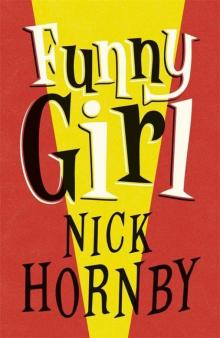 Funny Girl
Funny Girl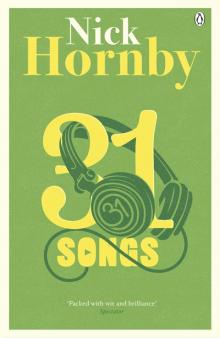 31 Songs
31 Songs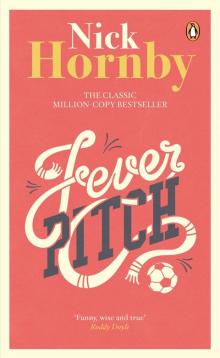 Fever Pitch
Fever Pitch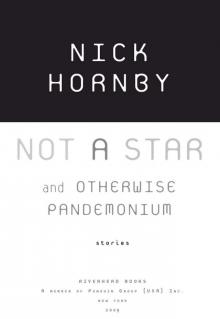 Not a Star and Otherwise Pandemonium
Not a Star and Otherwise Pandemonium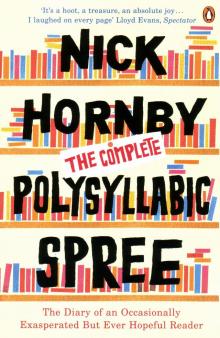 The Complete Polysyllabic Spree
The Complete Polysyllabic Spree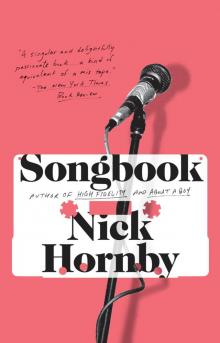 Songbook
Songbook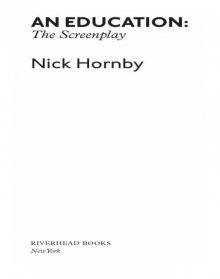 An Education
An Education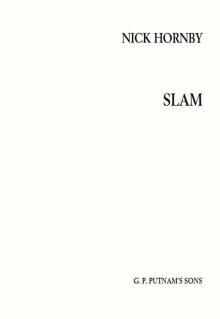 Slam
Slam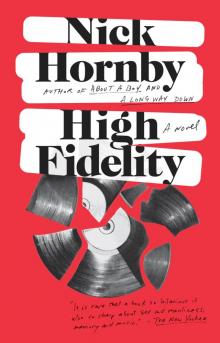 High Fidelity
High Fidelity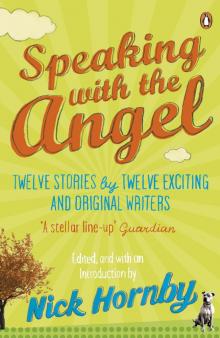 Speaking With the Angel
Speaking With the Angel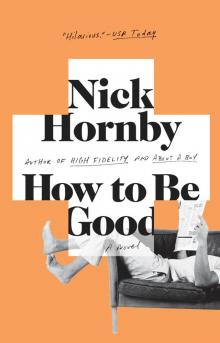 How to Be Good
How to Be Good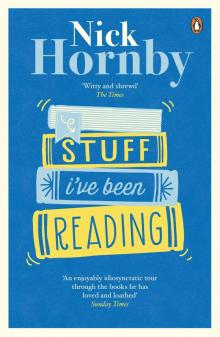 Stuff I've Been Reading
Stuff I've Been Reading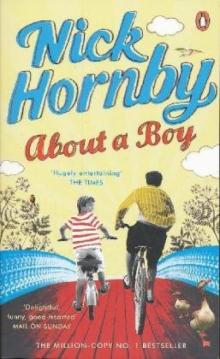 About a Boy
About a Boy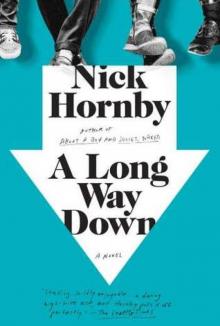 A Long Way Down
A Long Way Down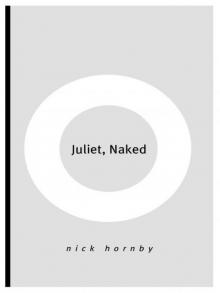 Juliet, Naked
Juliet, Naked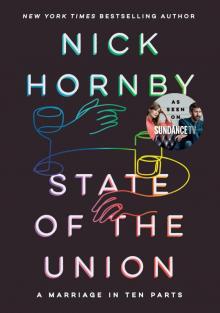 State of the Union
State of the Union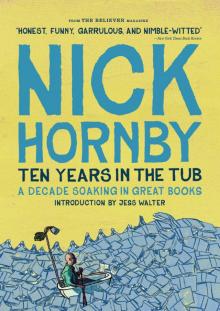 Ten Years in the Tub: A Decade Soaking in Great Books
Ten Years in the Tub: A Decade Soaking in Great Books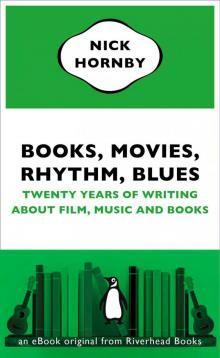 Books, Movies, Rhythm, Blues: Twenty Years of Writing About Film, Music and Books
Books, Movies, Rhythm, Blues: Twenty Years of Writing About Film, Music and Books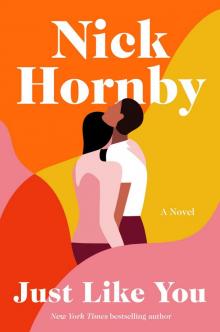 Just Like You
Just Like You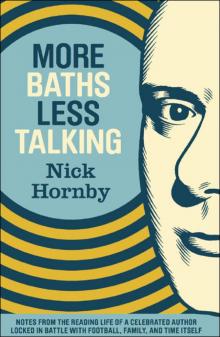 More Baths Less Talking
More Baths Less Talking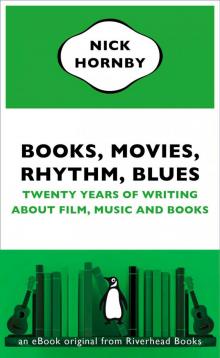 Books, Movies, Rhythm, Blues
Books, Movies, Rhythm, Blues